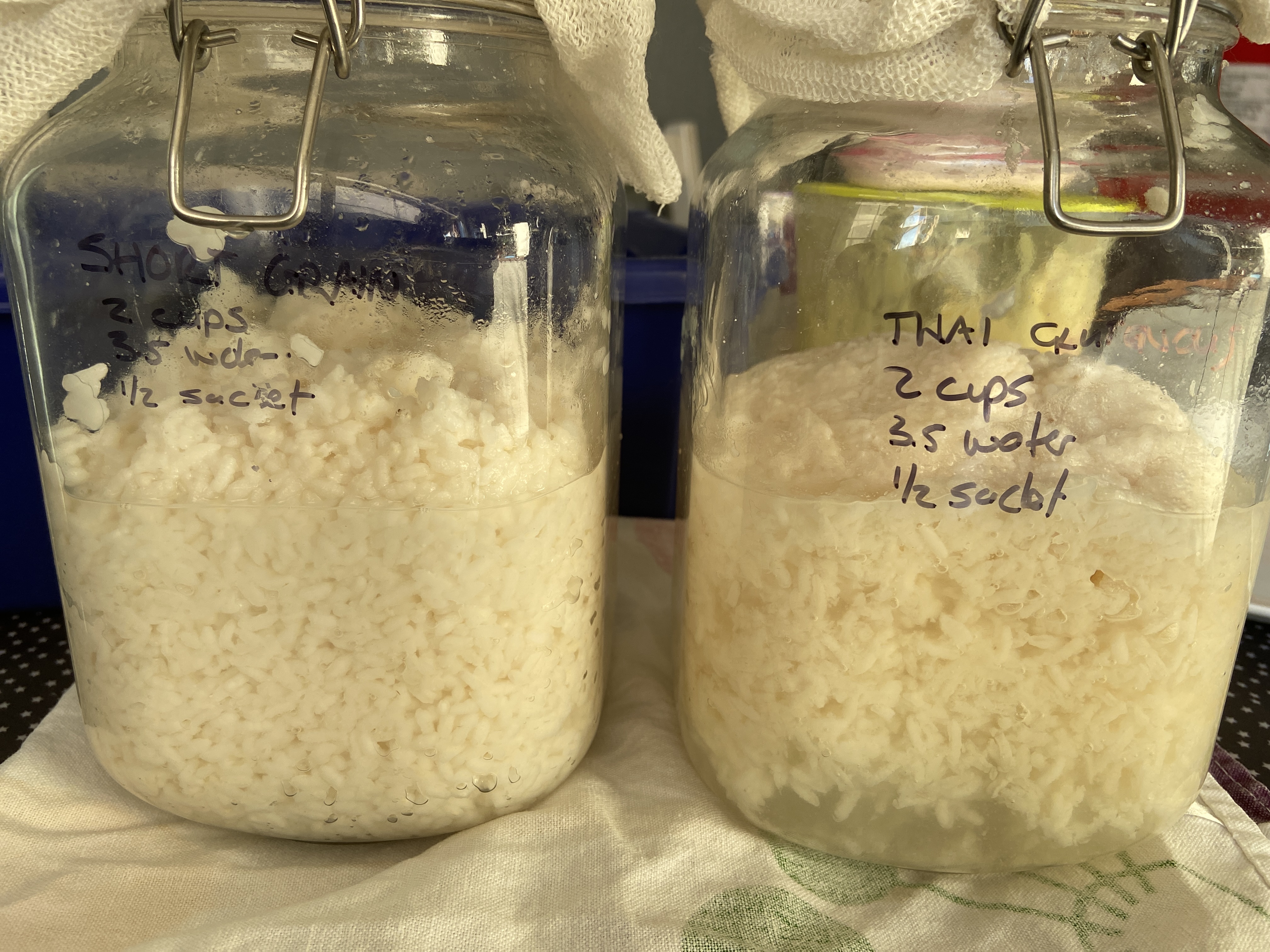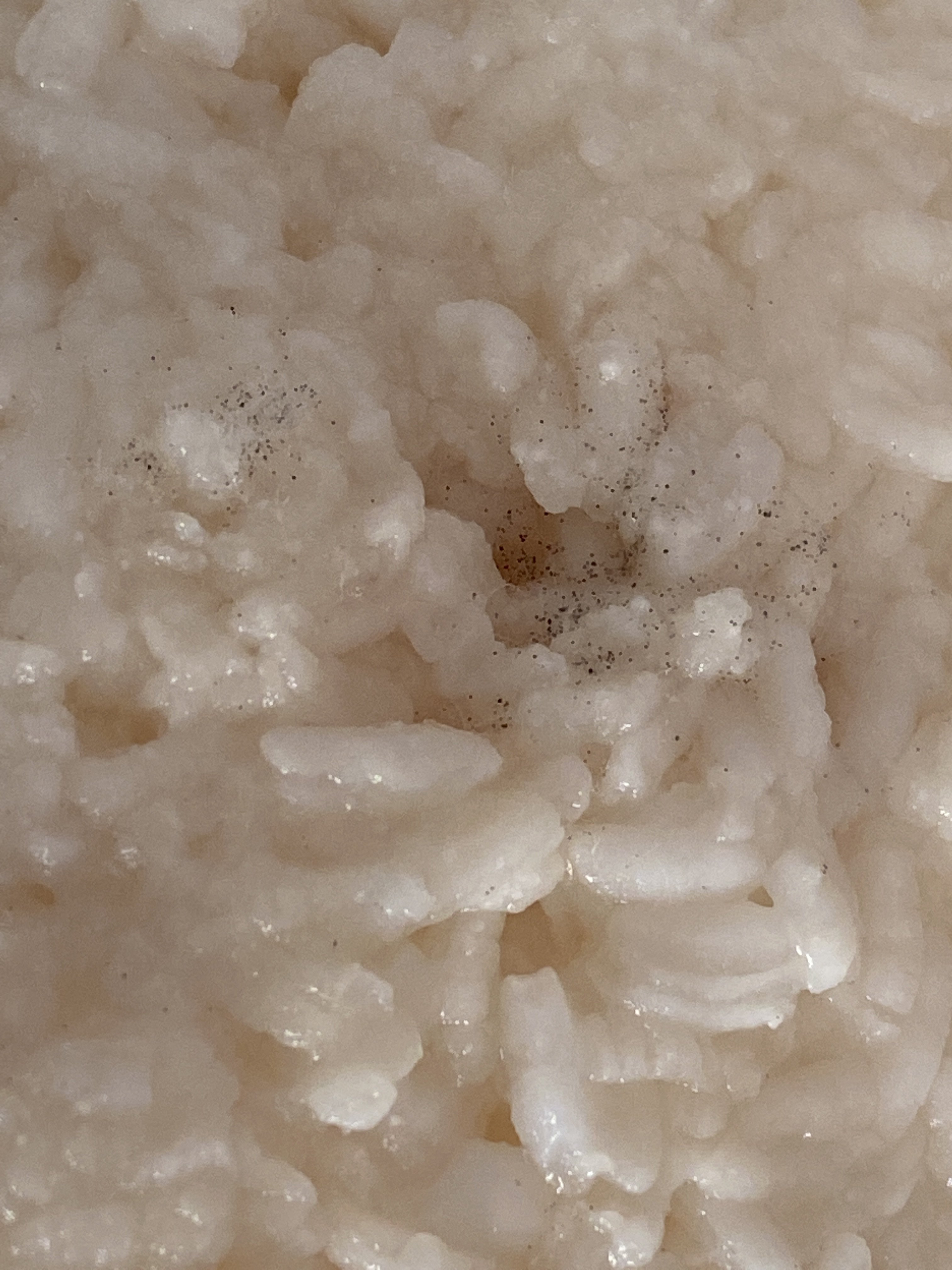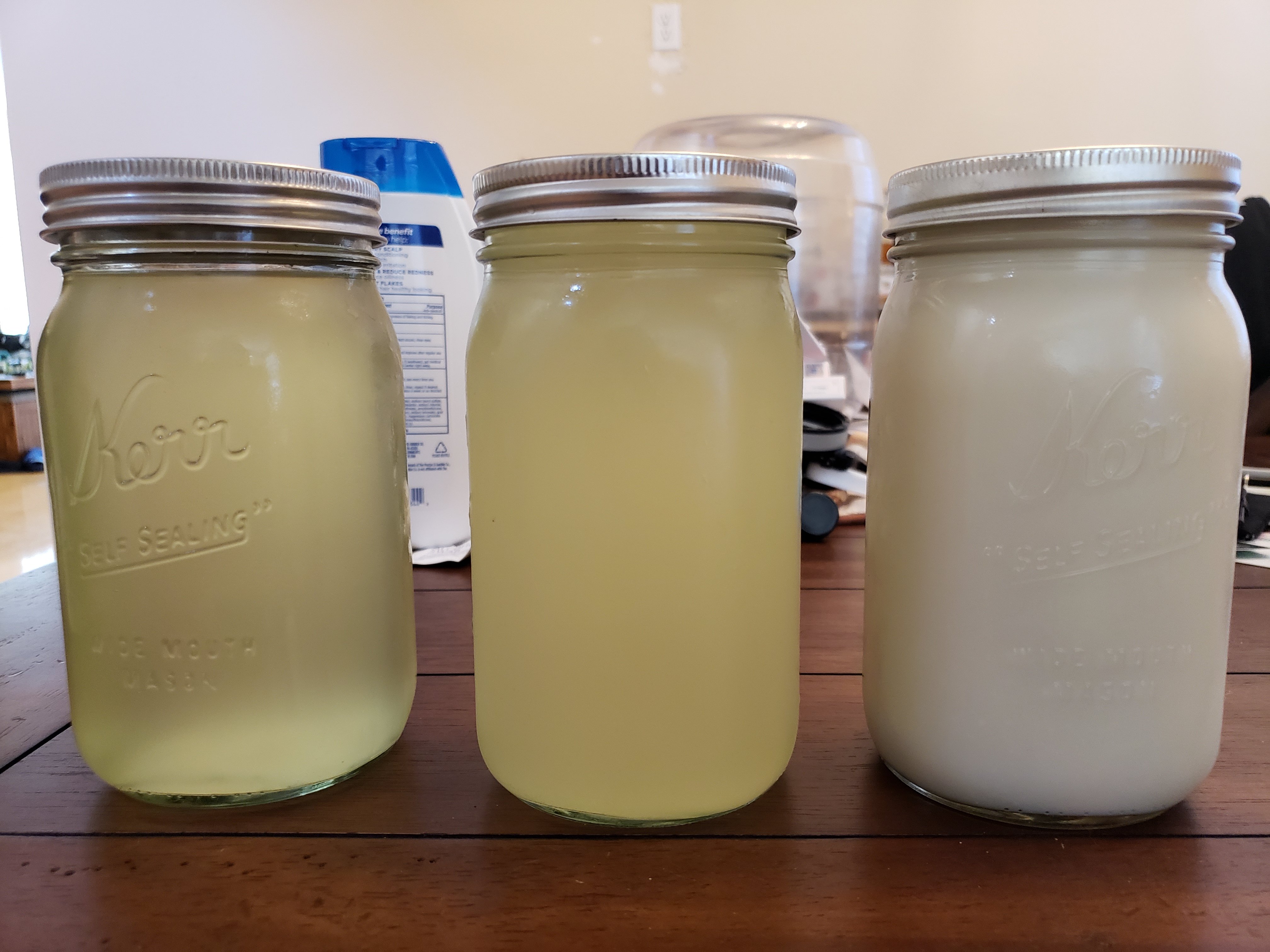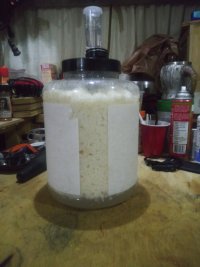"According to Fred Eckhardt, add water to the cooked rice at .56:1 ratio by volume to make ordinary rice wine at 10-11% alcohol."
I think Fred was making Sake, not rice wine. His instructions might not apply to the style of rice wine we are making.
I think Fred was making Sake, not rice wine. His instructions might not apply to the style of rice wine we are making.




































![Craft A Brew - Safale S-04 Dry Yeast - Fermentis - English Ale Dry Yeast - For English and American Ales and Hard Apple Ciders - Ingredients for Home Brewing - Beer Making Supplies - [1 Pack]](https://m.media-amazon.com/images/I/41fVGNh6JfL._SL500_.jpg)













